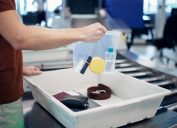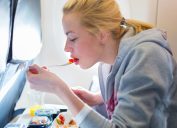9 Foods That Can Cure Jet Lag, Experts Say
Here's exactly what to eat and drink to feel better faster after flying.
From standing in long lines at the airport to sitting for hours on an airplane, there's no shortage of ways that flying can take a toll on your body. Jet lag is an especially unwelcome aspect of air travel and one that seems to linger the longest. If you're prone to feeling groggy, fatigued, and unwell post-flight, experts say that what you eat can help with these symptoms. Read on for the best foods to cure jet lag, according to dietitians, nutritionists, and other health experts.
RELATED: 30 Best Foods for Maximizing Your Energy Levels.
9 Best Foods for Jet Lag
1. Water-rich fruits and veggies
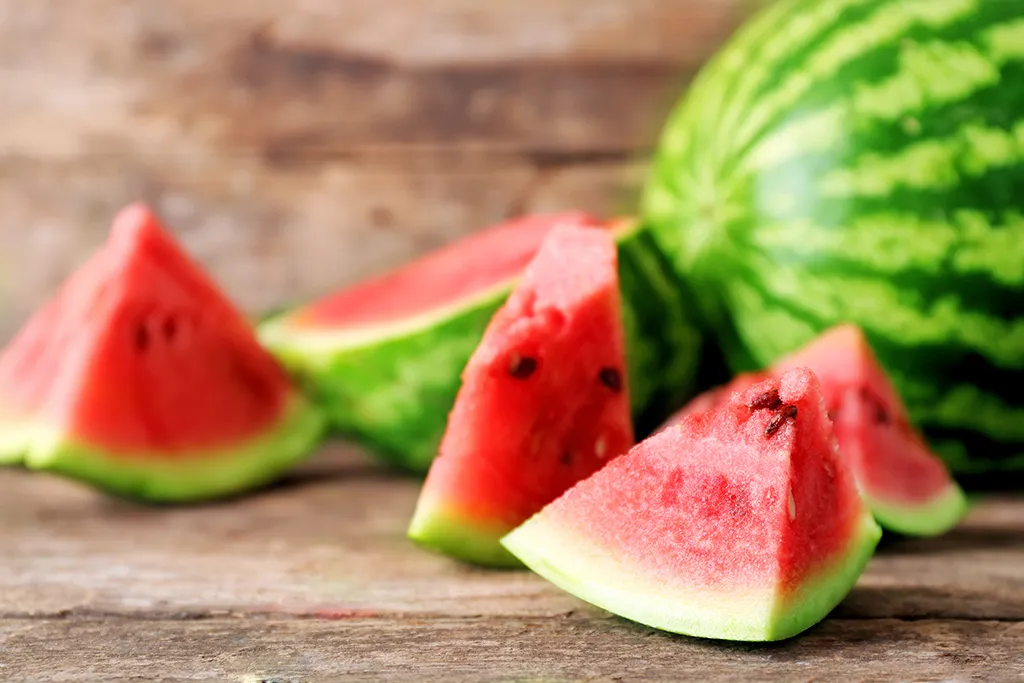
Dehydration can exacerbate the symptoms of jet lag, according to the Mayo Clinic. That's why, in addition to drinking plenty of water when you fly, experts recommend eating foods that have a high water content.
"If you're feeling groggy or have mind fog, then dehydration is likely to be at play," explains Ben Carvosso, DC, a chiropractor, nutritionist for MP Nutrition, and the host of Health Matters on RPP FM. "High water content foods like watermelon and cucumbers are ideal to replenish fluids lost during the flight. The antioxidants in cucumbers target inflammation, helping to reduce that puffy look many of us have after long-haul flights."
RELATED: 6 Airplane Meals You Should Never Eat, Experts Warn.
2. Nuts and seeds
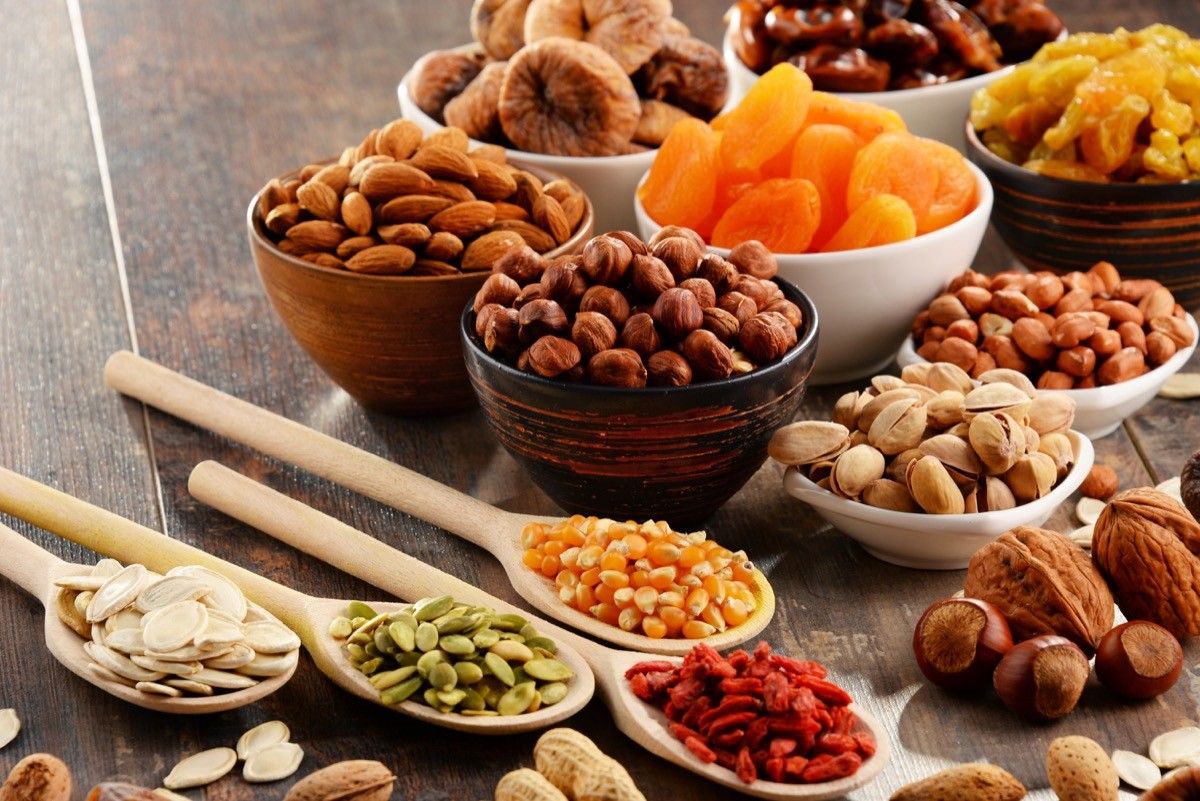
Studies have shown that taking magnesium supplements may help minimize sleep disturbances, including those resulting from jet lag. Eating foods that are rich in the mineral may come with similar benefits.
"It's quite normal to feel exhausted when jet lagged—you may struggle to sleep as your body clock is out of sync. Magnesium promotes a healthy night's sleep by relaxing muscles and helping you to reset your body clock," explains Carvosso.
In particular, he notes that "nuts and seeds are jam-packed with magnesium, and are a dream snack for the jet lagged."
3. Oats
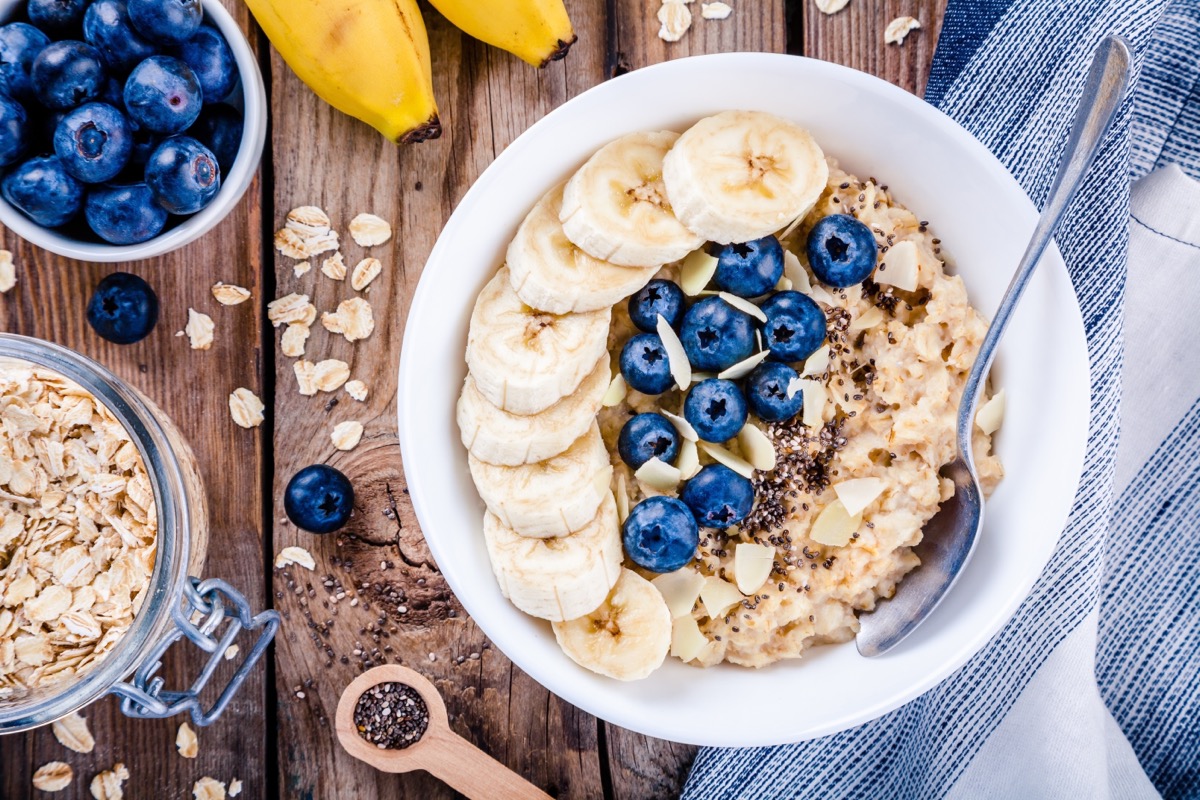
Nutritionists commonly recommend eating oats and other complex carbohydrates for a boost of stable, sustained, slow-release energy. This can help you overcome the lethargy and energy changes that typically accompany jet lag, says Radwa Khalil, founder of the nutrition website Healthy Life Trainer.
"This gives you long-lasting energy, keeping you awake and concentrated during your journey, even after long flights," Khalil explains. "What distinguishes oats is their extraordinary capacity to balance blood sugar levels, which is a vital feature considering how jet lag can disrupt your body's normal energy patterns."
RELATED: 4 Things You're Eating That Could Be Making You Tired, According to a Nutritionist.
4. Bananas
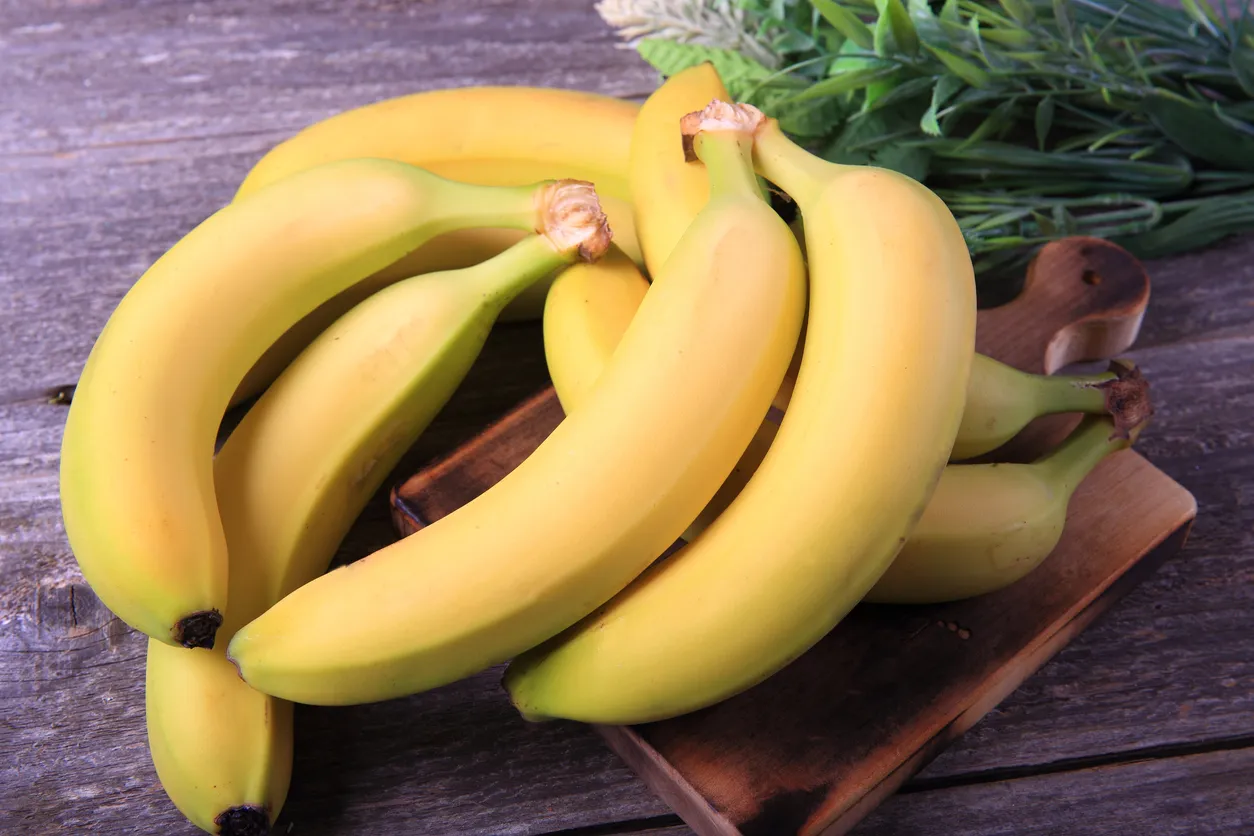
Bananas are another excellent in-flight snack that can help minimize your symptoms of jet lag.
"Bananas contain magnesium and potassium, which are electrolytes that help your body retain water when you rehydrate. They not only help you feel better but promote a healthy night's sleep," says Carvosso.
High in fiber, these fruits can also help restore normal digestion and minimize bloating after a long-haul flight.
5. Kiwi fruits
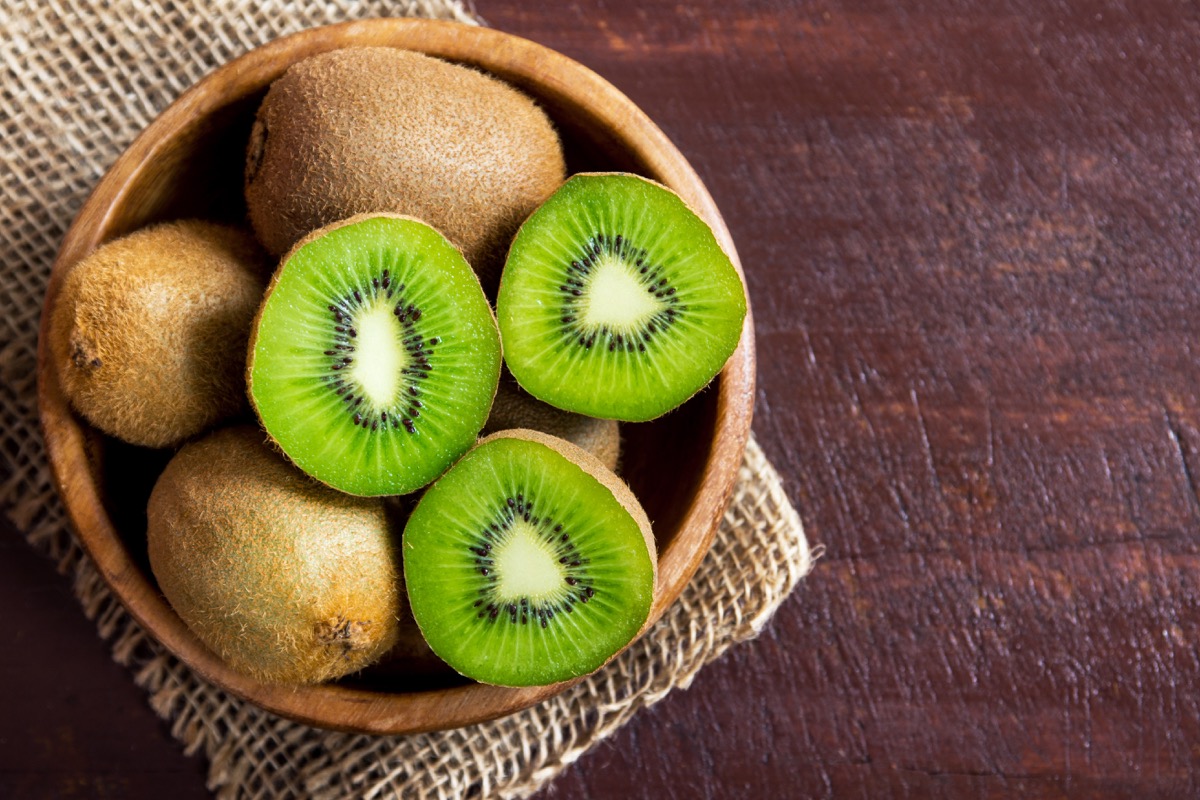
A 2011 study published in the Asia Pacific Journal of Clinical Nutrition found that eating one kiwi per day can help you regulate your sleep by increasing your total sleep time and sleep efficiency. Carvosso notes that this makes it a great post-flight snack for getting your circadian rhythm back on track.
"Kiwi fruit is a serotonin bomb, blasting away jet lag. Serotonin promotes a feeling of well-being, plus our bodies can convert it to melatonin, a sleep regulator," he says.
RELATED: 6 Foods That Are Making You Sweat More, Experts Say.
6. Coffee
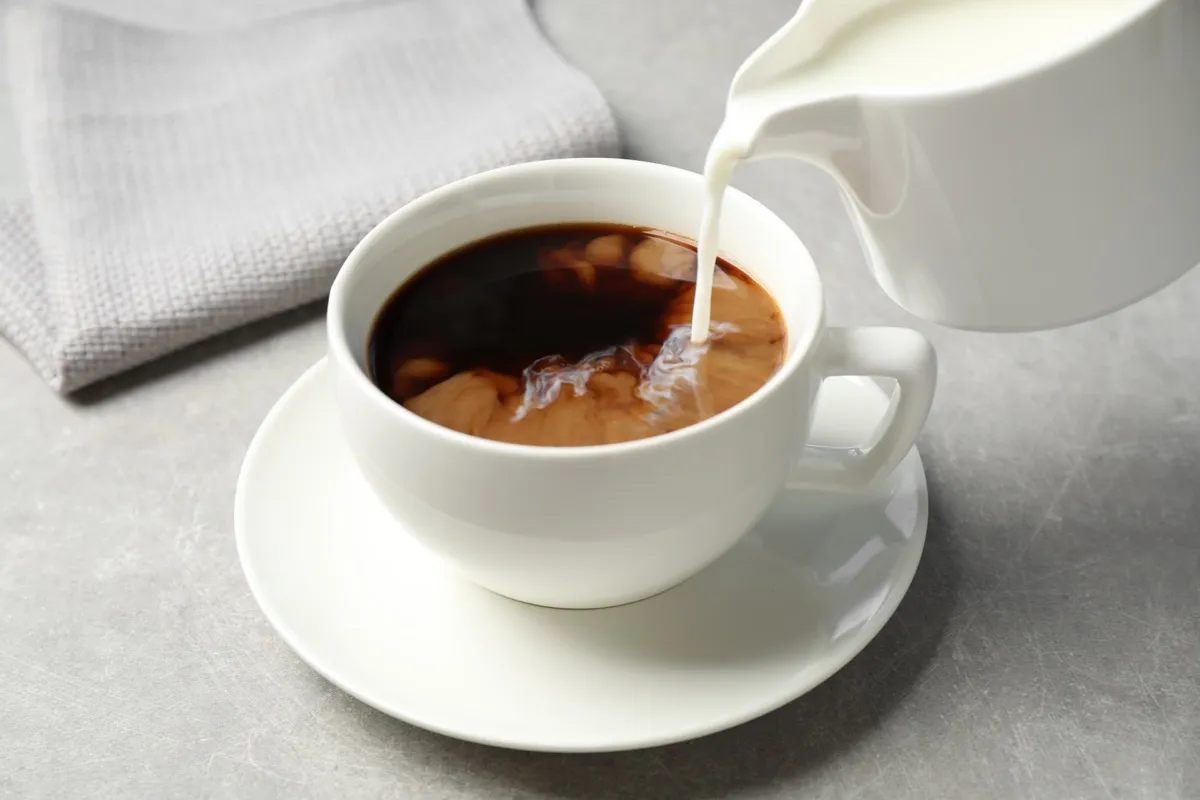
Having a caffeinated cup of coffee after your flight can also help you feel more energized for the day ahead—though experts warn that it's not a replacement for sleep and that too much caffeine can backfire.
"This can help you stay awake, alert, and energized after feeling the effects of jet lag. Just be sure to have it in moderation as too much can have negative effects," says Jesse Feder, RDN, CPT, a registered dietitian, personal trainer, and contributor to My Crohn's and Colitis Team.
7. Tea

Tea is another beverage that can help you kick jet lag to the curb, whether you opt for a caffeinated cup to help increase alertness when you're groggy, or a decaffeinated tea to soothe you to sleep when jet lag keeps you up.
Carvosso adds that drinking ginger tea in particular may help alleviate certain gastro-intestinal symptoms associated with jet lag.
"Long-haul flights can cause stomach issues which make jet lag feel a whole lot worse. Ginger is great for the stomach, it relieves bloating and gas, which are common problems after a flight. Sipping a hot mug of ginger and lemon will rehydrate you while relieving gas and bloating," he explains.
RELATED: 6 Things You Should Never Eat or Drink on a Plane If You're Over 60.
8. Sports drinks
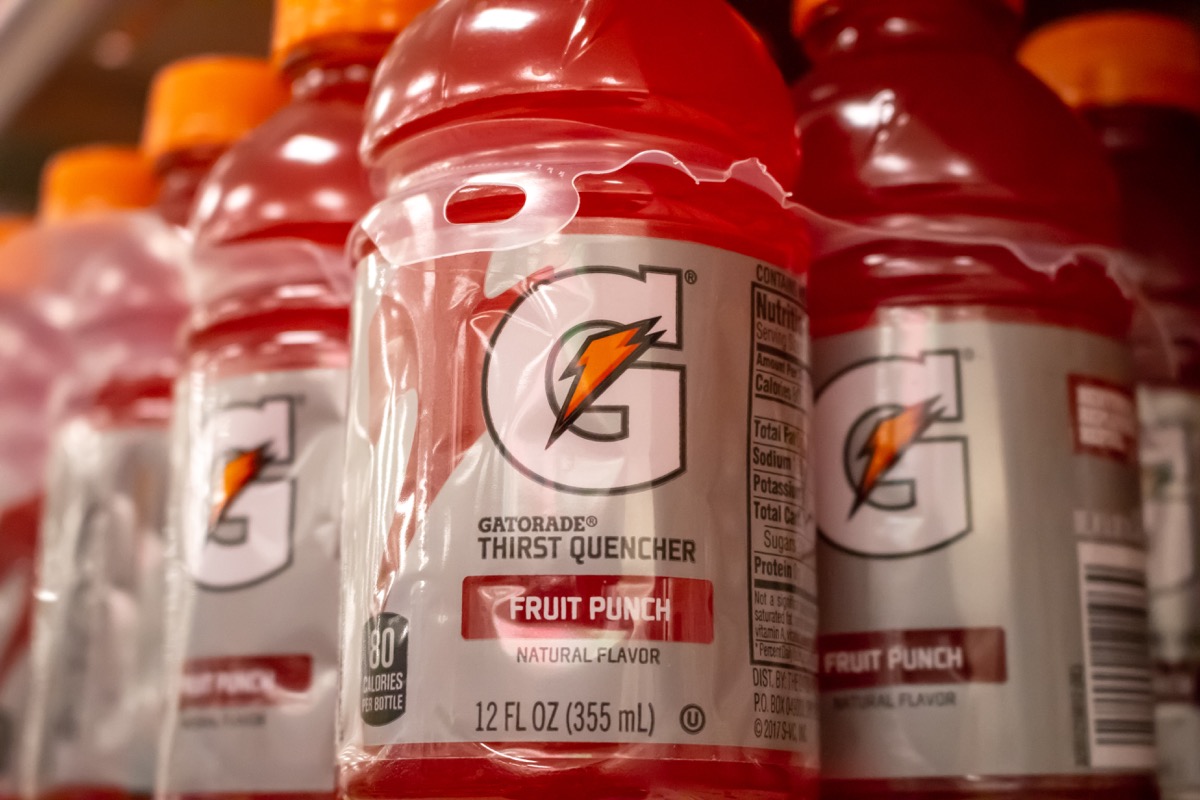
It's not uncommon to feel dehydrated after a long flight—which is why the Aerospace Medical Association (AsMA) recommends drinking eight ounces of water for each hour that you fly. Drinking sports drinks that help you replenish electrolyte stores may be an even more efficient way to rebound from the effects of dehydration after a long-haul flight.
"Electrolyte beverages such as Gatorade, Powerade, etc., contain high amounts of essential electrolytes our bodies need to stay hydrated," says Feder. "After a long flight, you may be lacking not only water but these essential electrolytes as well."
9. A big breakfast
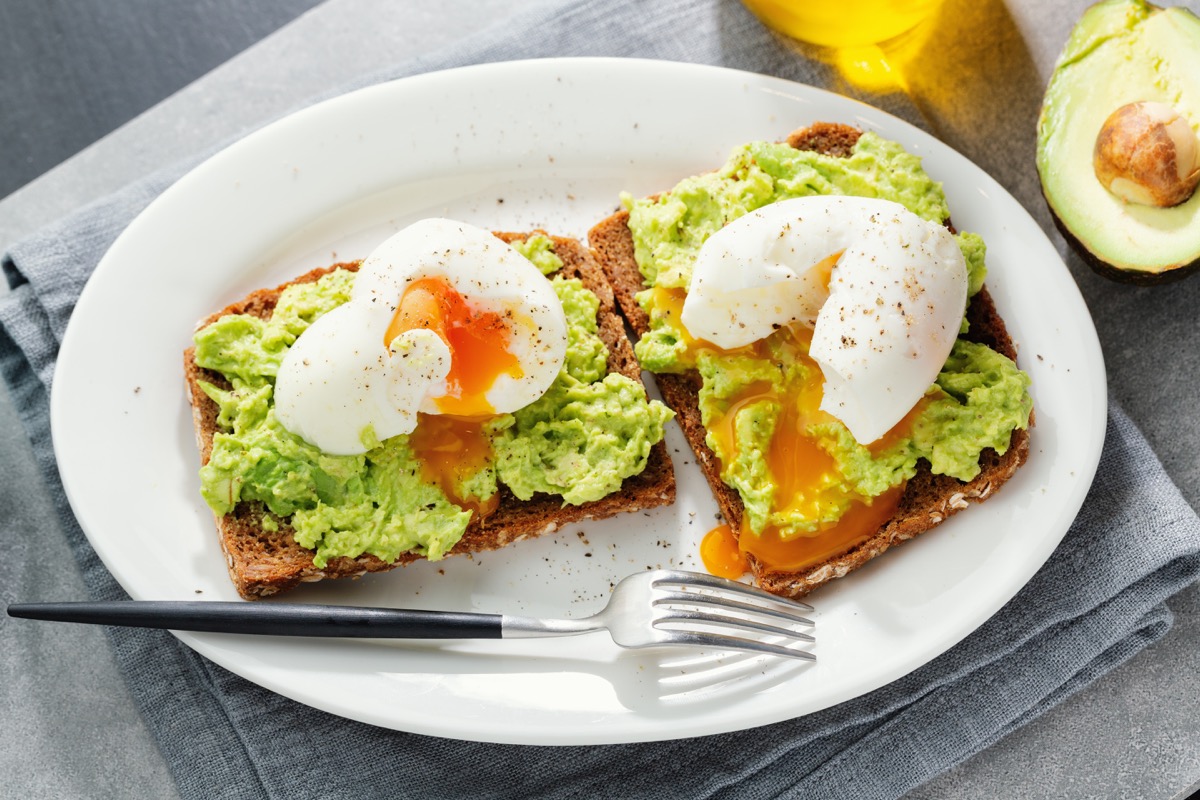
Finally, recent research published in the scientific journal Chaos, found that having a big, balanced breakfast after a flight can help reset your circadian rhythm and avert the worst symptoms of jet lag.
"Constantly shifting meal schedules or having a meal at night is discouraged, as it can lead to misalignment between internal clocks," explains Yitong "Pepper" Huang, PhD, a postdoctoral fellow at Northwestern University. "Having a larger meal in the early morning of the new time zone can help overcome jet lag," she shared via Talker.
For more travel and wellness tips sent directly to your inbox, sign up for our daily newsletter.
- Source: https://www.mayoclinic.org/diseases-conditions/jet-lag/symptoms-causes/syc-20374027
- Source: https://www.ncbi.nlm.nih.gov/pmc/articles/PMC3703169/
- Source: https://www.nutritionalmagnesium.org/magnesium-and-reducing-the-effects-of-jet-lag/
- Source: https://pubmed.ncbi.nlm.nih.gov/21669584/
- Source: https://www.asma.org/asma/media/asma/Travel-Publications/HEALTH-TIPS-FOR-AIRLINE-TRAVEL-Trifold-2013.pdf


